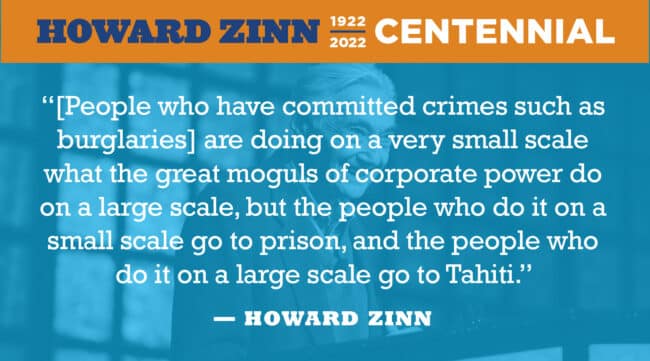
Here are excerpts from Howard Zinn’s writing about prisons and his correspondence with prisoners. While Zinn’s essays on the Civil Rights Movement and war are well known, his writing about prisons gets less attention, reflecting the invisibility of mass incarceration in this country.
As Howard himself said,
We have to begin. And the only way to begin is from below, with the prisoners themselves, with their families, their friends, people in the community who begin to care. It is they — we — who need to organize, to resist, to pressure, to demand, to persuade, to jolt people into new ways of thinking by confronting them with the horror and unworkability of prisons, the need to abolish them, and what that means for changing so much else. We need to have immediate reforms, even while we refuse to fool ourselves about how reforms are not enough, how fundamental change is needed.
It has to come from below, because change that comes from the top, from national laws, from legislators, has no staying power unless pushed by an incessant force of those who care most, and who don’t stop. Organized people, at the immediate, local level, who do not get discouraged when they lose, and don’t disband when they win, and who have a long-range view of what is needed — that may be the best solution there is, because there is no perfect one, to the dilemma of petty reform or utopian revolution. (from Justice in Everyday Life: The Way It Really Works)
Below are examples of Howard Zinn’s essays, quotes, trial testimonies, and correspondence related to prisons and prisoners. We will continue to add to the collection throughout this anniversary year.
Jump to: Essays & Talks on Prisons • Correspondence With the Incarcerated • Trial Testimonies in Defense of Direct Action • Quotes on Incarceration by Howard Zinn • Quotes About Howard Zinn & Prison • Related Resources & Articles
Essays & Talks On Prisons
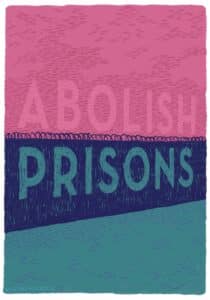 |
Howard Zinn on Prison Abolition“Solutions,” an essay in the chapter on prisons in Justice in Everyday Life: The Way It Really Works, published in 1974. In the spirit of prison abolitionists today, Zinn wrote: “Prisons cannot be reformed, any more than slavery can be reformed. They have to be abolished.” Read more. |
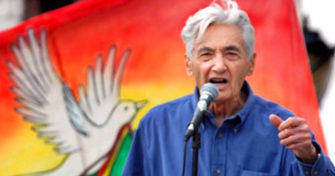 |
Howard Zinn Speaks on Prisons at Northeastern UniversityZinn discusses the significance of corresponding with prisoners Jimmy Barrett and Tiyo Attallah Salah-El, and the importance of building solidarity in the form of Books Through Bars. Video of Howard Zinn starts at 20:30. Watch the video. |
Correspondence With the Incarcerated
 |
Commemorating Tiyo Attallah Salah-El, Prison ActivistIn June 2018, Tiyo Attallah Salah-El (Sept. 13, 1932 – June 8, 2018) died inside Pennsylvania’s Dallas State Correctional Institution. Salah-El was a musician, scholar, and prison abolitionist who founded the Coalition for the Abolition of Prisons in 1995. Salah-El was 85 years old and had been incarcerated for more than 40 years. He became pen pals with Howard Zinn who Zinn mentioned in his autobiography You Can’t Be Neutral on a Moving Train. Learn more about Howard and Tiyo’s correspondence. |
Trial Testimonies in Defense of Direct Action
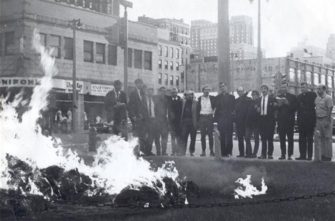 |
Trial of the Milwaukee 14On Sept. 24, 1968, 14 people removed 10,000 draft files from the Milwaukee draft board and burned them with home-made napalm. They were arrested and went to trial. Most served at least a year of jail time. Howard Zinn testified at their trial. |
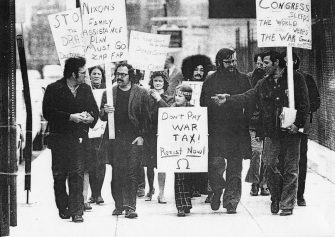 |
Trial of the Camden 28On Aug. 21, 1971, 20 anti-war protesters were arrested for breaking into selective service offices in Camden, New Jersey, and destroying draft records. Five days later, eight more people were indicted. The 28 people, called “the Camden 28,” referred to themselves as “America’s conscience.” Howard Zinn testified at their trial. |
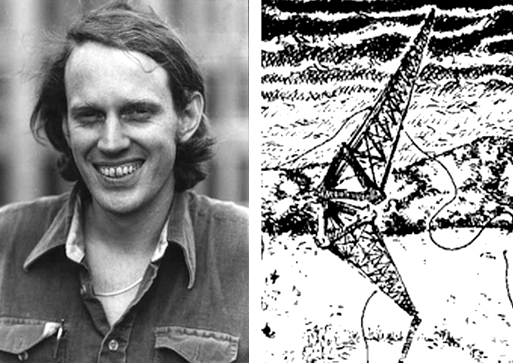 |
Trial of Sam LovejoyIn the wee morning hours of February 22, 1974, Sam Lovejoy, a member of one of the local communes near Montague, Massachusetts, slipped onto the Montague Plains and sabotaged the 500 foot weather tower Northeast Utilities had erected to test wind direction at the site. Howard Zinn testified at his trial. |
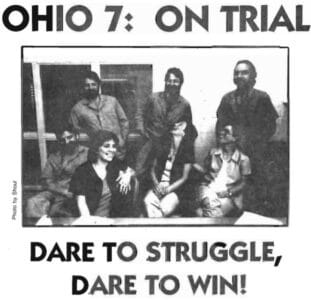 |
Sedition Trial of the United Freedom FrontThe United Freedom Front (UFF) were a group of working-class revolutionaries who engaged in armed struggle against U.S. imperialism in solidarity with freedom struggles in South Africa and throughout Central America in the 1970s and 1980s. In the mid-1980s, eight members of the group were arrested and faced numerous state and federal charges. Howard Zinn testified at their federal sedition trial.
|
Quotes on Incarceration by Howard Zinn
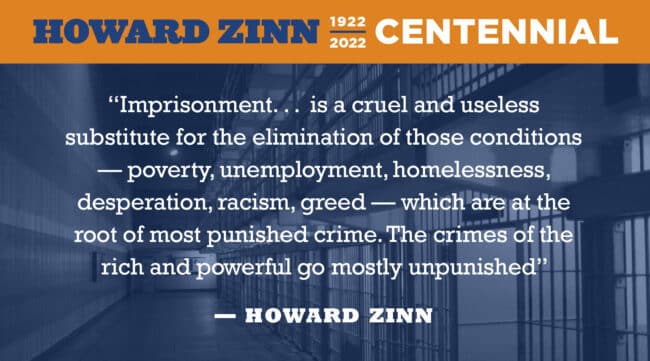
The prisons in the United States had long been an extreme reflection of the American system itself: the stark life differences between rich and poor, the racism, the use of victims against one another, the lack of resources of the underclass to speak out, the endless “reforms” that changed little. Dostoevsky once said: “The degree of civilization in a society can be judged by entering its prisons.” — A People’s History of the United States
It had long been true, and prisoners knew this better than anyone, that the poorer you were the more likely you were to end up in jail. This was not just because the poor committed more crimes. In fact, they did. The rich did not have to commit crimes to get what they wanted; the laws were on their side. But when the rich did commit crimes, they often were not prosecuted, and if they were they could get out on bail, hire clever lawyers, get better treatment from judges. Somehow, the jails ended up full of poor black people. — A People’s History of the United States
Most of the people in prison are not people who have committed mad, violent crimes. Most of the people in prison are people who have engaged in drugs, who dealt in drugs, who have just possessed drugs or people who have committed crimes of burglary and so on. These are people who’ve carried out in their own individual way, the premise of the system, which is ‘try to get as much for yourself as you can.’ They believe, you might say, in capitalism on a small scale. They’re doing on a very small scale what the great moguls of corporate power do on a large scale, but the people who do it on a small scale go to prison, and the people who do it on a large scale go to Tahiti. — video starts at 20:30
Prisons cannot be reformed, any more than slavery can be reformed. They have to be abolished. And yet, they will not be abolished until society is changed, until people think differently about punishment, about law, about crime, about violence, about property, about human beings. They will not be abolished until our society works differently: until wealth is equally distributed, and people don’t live in slums, and the motivations for crime and punishment become very weak, and the desire to live with other people becomes very strong. — Justice in Everyday Life: The Way It Really Works
Our only hope for real change lies in the possibility that all of us who are slightly privileged and slightly uneasy begin to see that we are, like the guards in the prison uprising at Attica, expendable. That the establishment, whatever rewards it gives us, will also, if necessary to maintain its control, kill us. If the guards stop obeying — if you stop obeying — the system falls. If we understand that, and act on it, not only will life be more satisfying today, but our grandchildren, our great grandchildren, may see a different and marvelous world. — “American Ruling Class: Howard Zinn and the American Revolution” YouTube video
I am convinced that imprisonment is a way of pretending to solve the problem of crime. It does nothing for the victims of crime, but perpetuates the idea of retribution, thus maintaining the endless cycle of violence in our culture. It is a cruel and useless substitute for the elimination of those conditions — poverty, unemployment, homelessness, desperation, racism, greed — which are at the root of most punished crime. The crimes of the rich and powerful go mostly unpunished. It must surely be a tribute to the resilience of the human spirit that even a small number of those men and women in the hell of the prison system survive it and hold on to their humanity. — You Can’t Be Neutral on a Moving Train: A Personal History of Our Times
Protest beyond the law is not a departure from democracy; it is absolutely essential to it. It is a corrective to the sluggishness of “the proper channels,” a way of breaking through passages blocked by tradition and prejudice. It is disruptive and troublesome, but it is a necessary disruption, a healthy troublesomeness. — Zinn Reader: Writings on Disobedience and Democracy, “Law and Justice”
That the powerless can expect rational compromise from the powerful, that rulers and ruled share common values in the modern liberal state, is a seductive idea, mangled by history but kept alive by incessant transfusions. — Zinn Reader: Writings on Disobedience and Democracy, “Attica”
At the heart of this process of change were the prisoners themselves, affected in some indescribable way these past years by the revolt at Attica, by the death of George Jackson, by the war in Vietnam, by the general rise of protest in the country. In this process, men, who had not gone in as “political” prisoners, who had been what we call common criminals, began emerging rehabilitated. But not in the way the government talks of rehabilitation, not obsequiously taking their place in the accepted, legal criminal order of things. Rather as rebels and organizers, as thoughtful, militant men ready to devote their lives to abolishing prisons along with that complexity of conditions that makes prisons seem logical. — Justice in Everyday Life: The Way It Really Works
If it is right to disobey unjust laws, it is right to disobey unjust punishment for breaking those laws. — Declarations of Independence: Cross-Examining American Ideology
Quotes About Howard Zinn & Prison
That’s the Howard Zinn we’re talking about. I knew him for 41 years. We went to jail together. We laughed together. We tried to sing together. . . and I’ll never forget the spirit of him. The connection between the economic and the existential. He was the kind of brother you wanted to go to jail with, you had fun in the cell with. Partly because he was an intellectual. . . He fundamentally believed that the life of the mind matters, that ideas make a difference, and it’s important that you commit yourself not just to reading, but to thinking critically about what you’re reading. . . There will never be a movement in America that doesn’t take seriously the life of the mind! A public intellectual, a democratic intellectual, a radical intellectual, but still humble enough to use what he had in service for what we in the Black church call, ‘The least of these.’ — Cornel West
In truth, this country has never, in reality, belonged to any single set of individuals, a fact that indigenous people well knew and understood. In A People’s History of the United States, Howard Zinn tells us that when the Arawak Indians ran out to greet Christopher Columbus, they came bearing food, water, and gifts — weapons. And how did Columbus respond to this expression of a shared humanity? He saw it as a weakness. “They would make fine servants,” he wrote in his diary. “With fifty men we could subjugate them all and make them do whatever we want.” Sadly, it is this fundamental misunderstanding of what it means to be a human being that has caused so much pain and unnecessary suffering in the world. The reduction of human beings to THINGS — to be used, sold, and subdued — has forced us all to live degraded lives, lives devoid of any real meaning or value. Somehow, at some point, we have to move away from this sordid history, towards a future that revolves around a more emergent — as opposed to divergent — narrative of what it means to be alive in the twenty-first century. — In an essay titled “Resist!” by politicized prisoner Keith Lamar / Bomani Shakur (authored Condemned, and has praised Zinn’s book, has taught the book in prison, and has even gone on a hunger strike in order to keep the book in his cell.)
I didn’t learn about Reconstruction in school — including college — and if not for Howard Zinn I would’ve remained incredibly ignorant for however long. — political prisoner Eric King
It was Howard Zinn who helped me get in touch with my own inner strength and his believing in me and not giving up on me and teaching me the tools for making such a huge transformation in my life. It has been over twenty years since I met Howard. He not only guided and inspired me and helped me earn my MA in political science, he came to this prison to visit me. We hugged, laughed and talked about many things. He wrote about me in one of his books, You Can’t Be Neutral on a Moving Train: A Personal History. He worked magic on my mind! He is a very special human being and I love him very much. — Tiyo Attallah Salah-El, in Pen Pal
From Howard Zinn I learned that passion and commitment can be combined with openness and inclusiveness. He did so with warmth and wisdom that have inspired me ever since. It is a gift of inestimable value. — Tiyo Attallah Salah-El, in Pen Pal
Related Resources & Articles
- In 1968, Howard Zinn and Daniel Berrigan traveled to Hanoi to negotiate the release of prisoners of war. Berrigan’s Mission to Hanoi chronicles this trip and the work Zinn did to free prisoners abroad.
- Political prisoner Mumia Abu-Jamal talks about Howard Zinn on Prison Radio (2019; 2 minutes).
- Peter N. Kirstein’s essay examines the details of Zinn’s extensive FBI file.
- Chris Hedges’ 2010 article “Why the Feds Fear Thinkers Like Howard Zinn” discusses teaching Zinn’s A People’s History of the United States in prisons.
- In Prison My Whole Life is a documentary about Mumia Abu-Jamal in which Howard Zinn is interviewed (Free on YouTube).
- To learn more about prisons and the important work of abolition check out the Social Justice Books Incarceration Reading List.

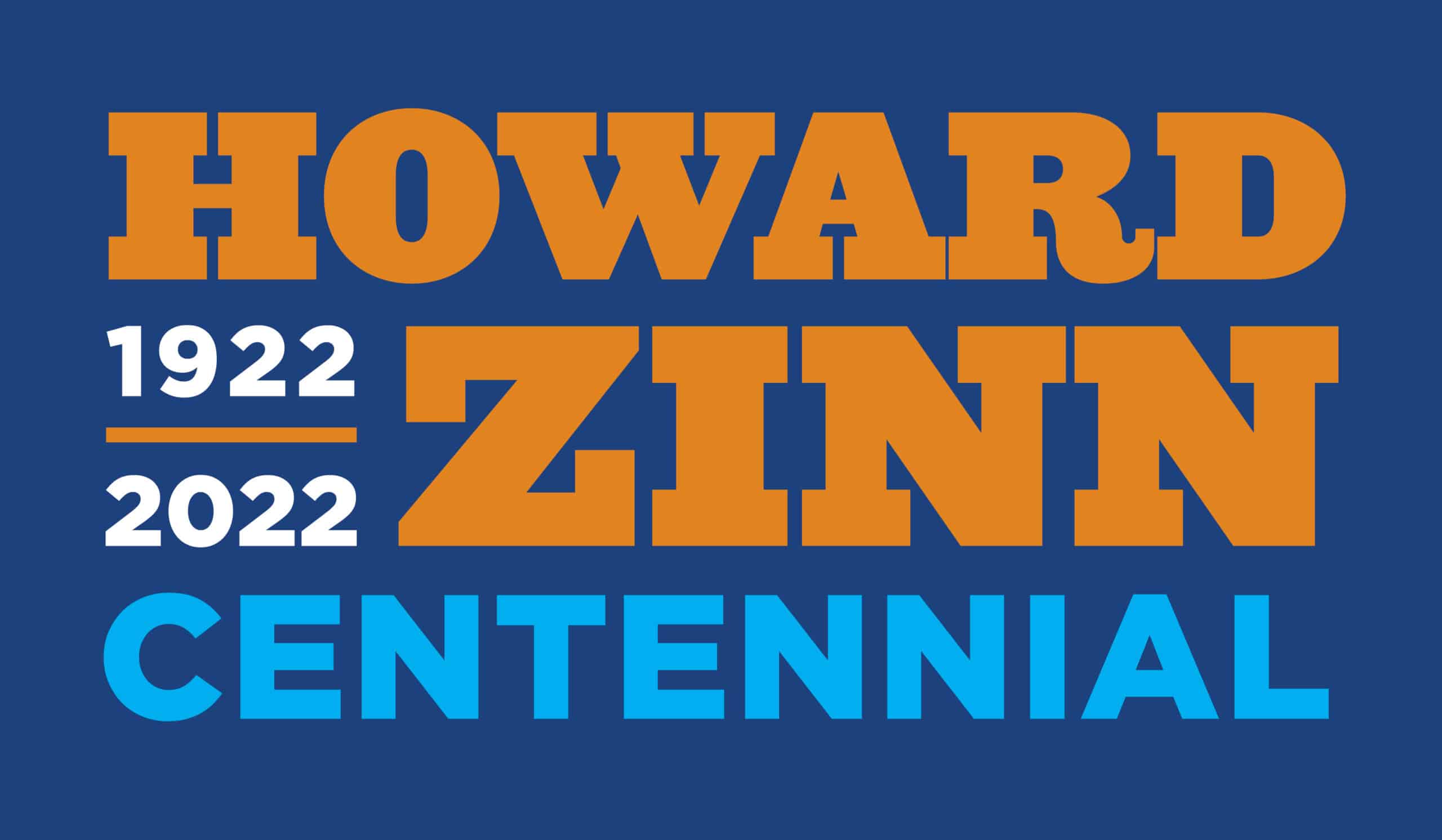
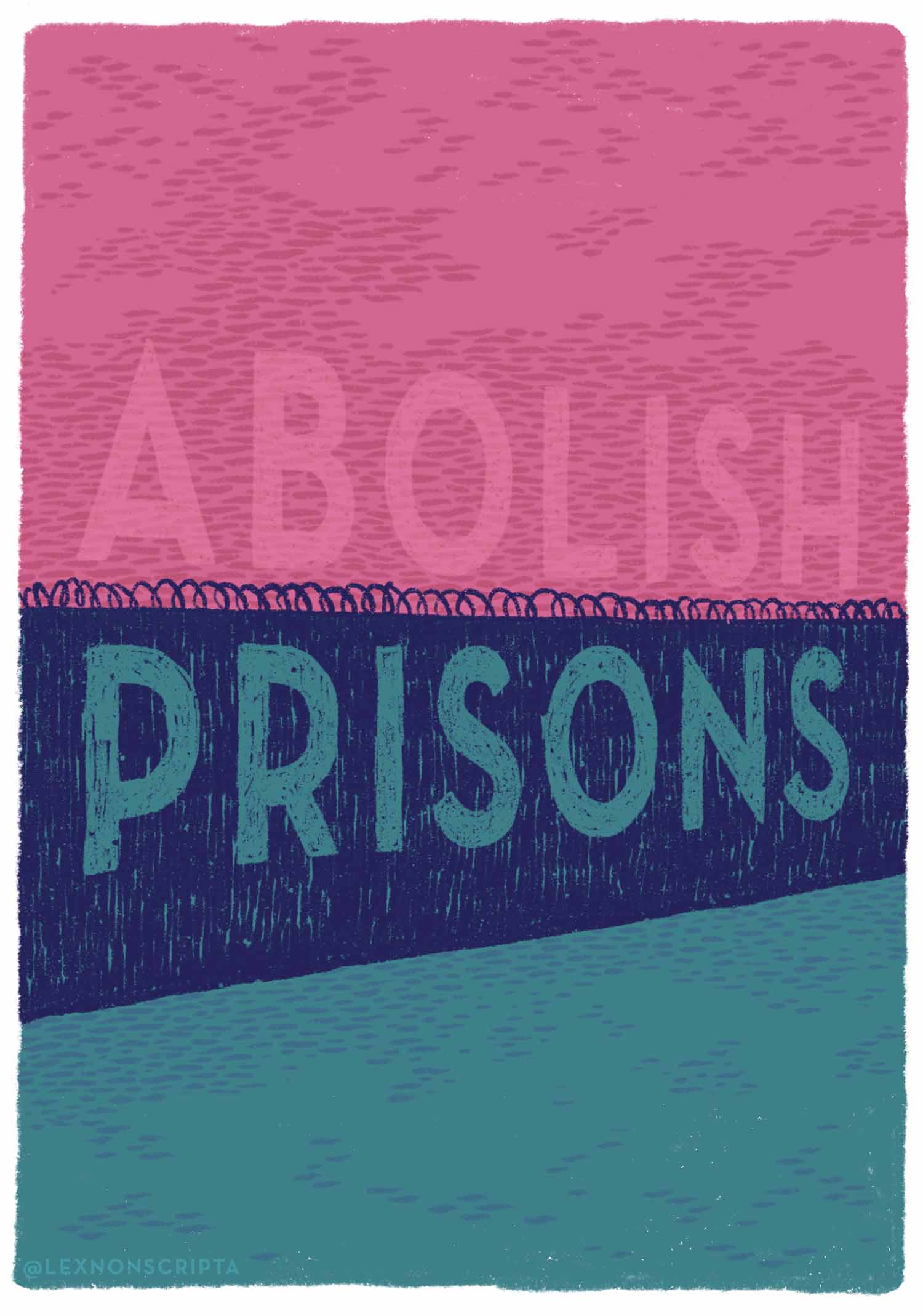





Twitter
Google plus
LinkedIn